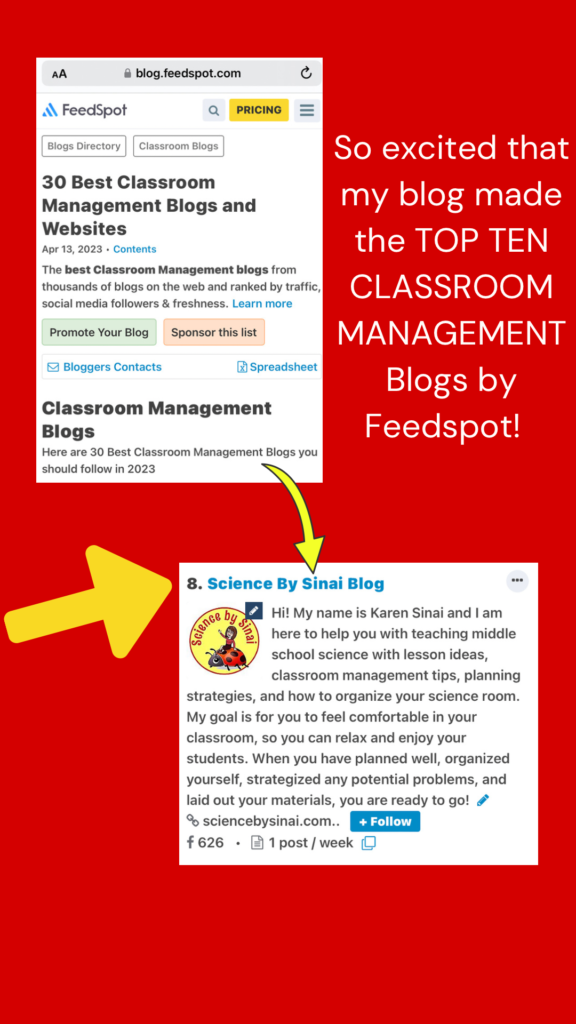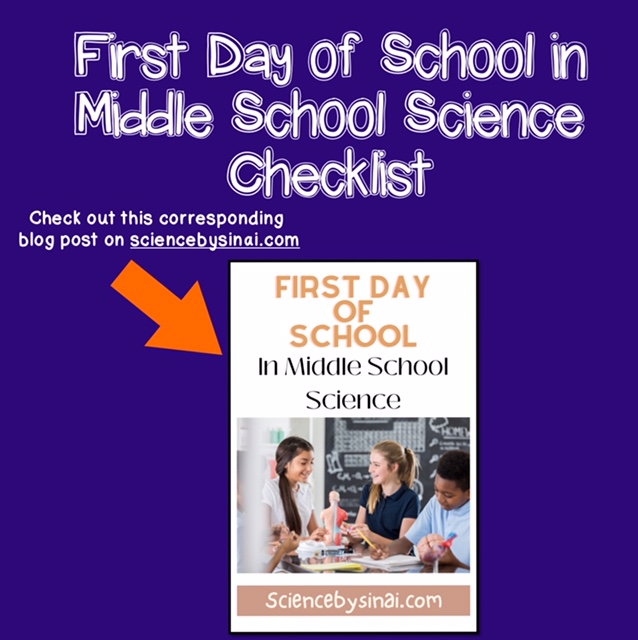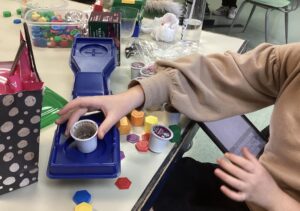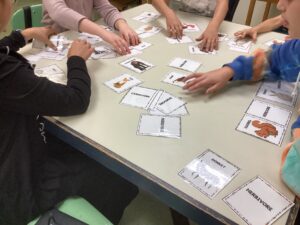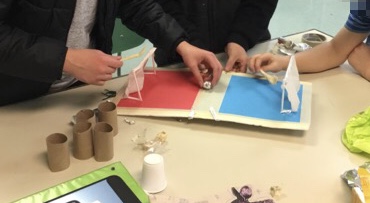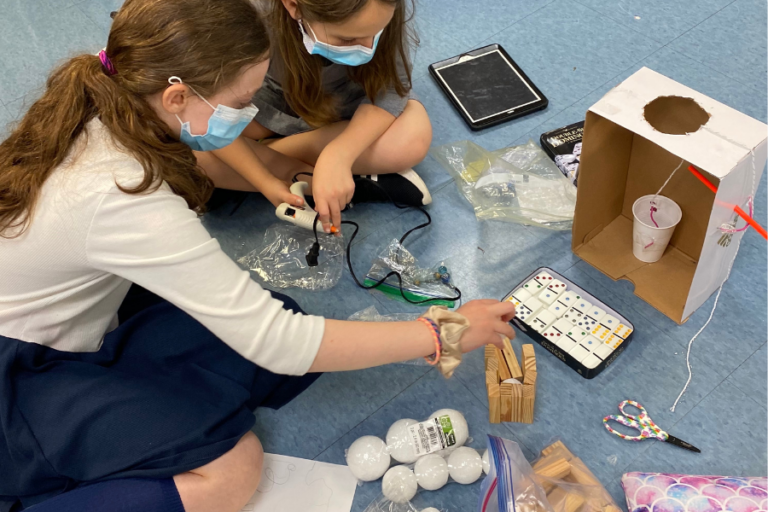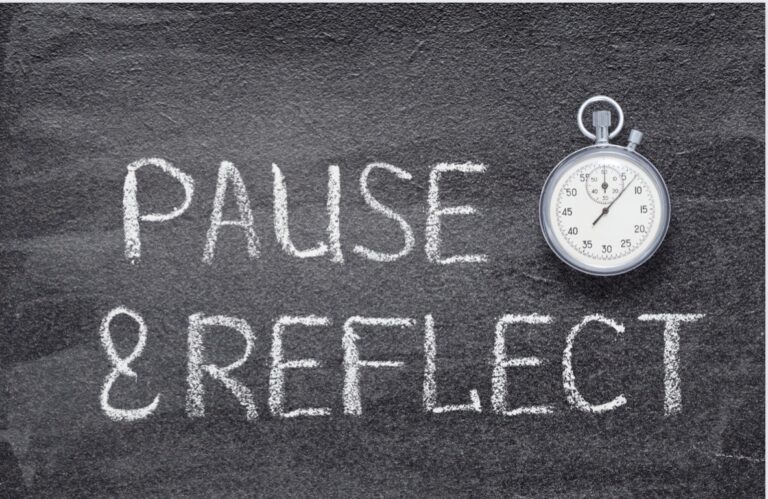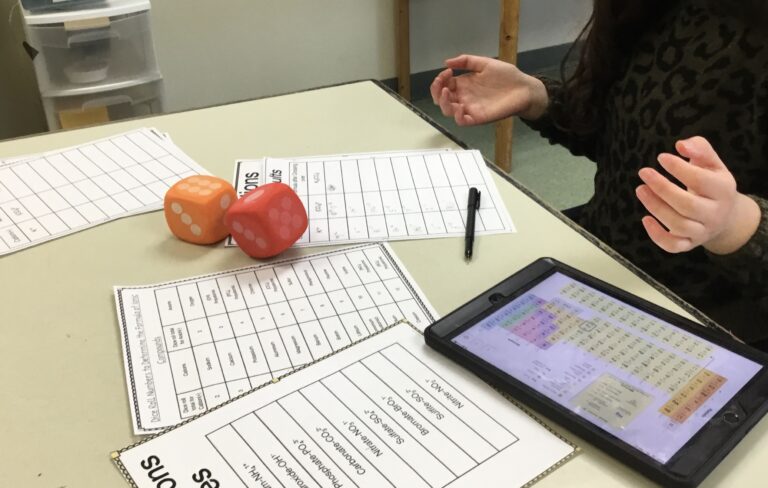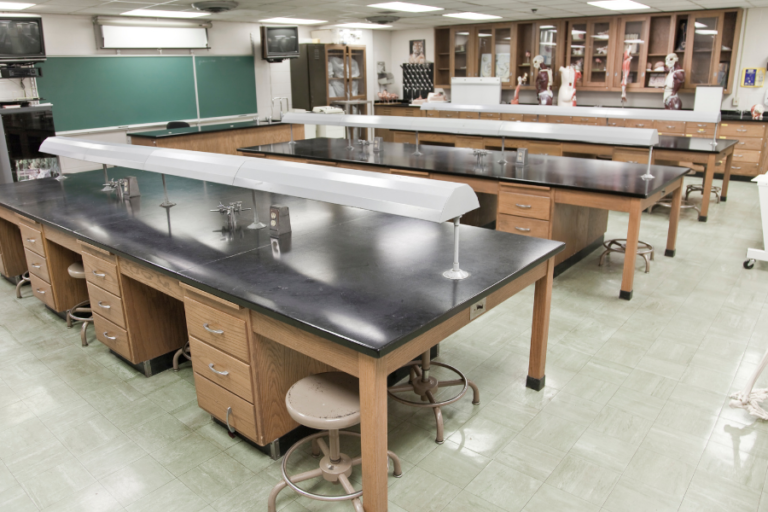Tips For Success as a New Middle School Science Teacher
Are you looking for some tips for success as a new middle school science teacher? Where do you start? It can be incredibly overwhelming to step into a new classroom, a new curriculum, new students, a rigorous schedule and high expectations!
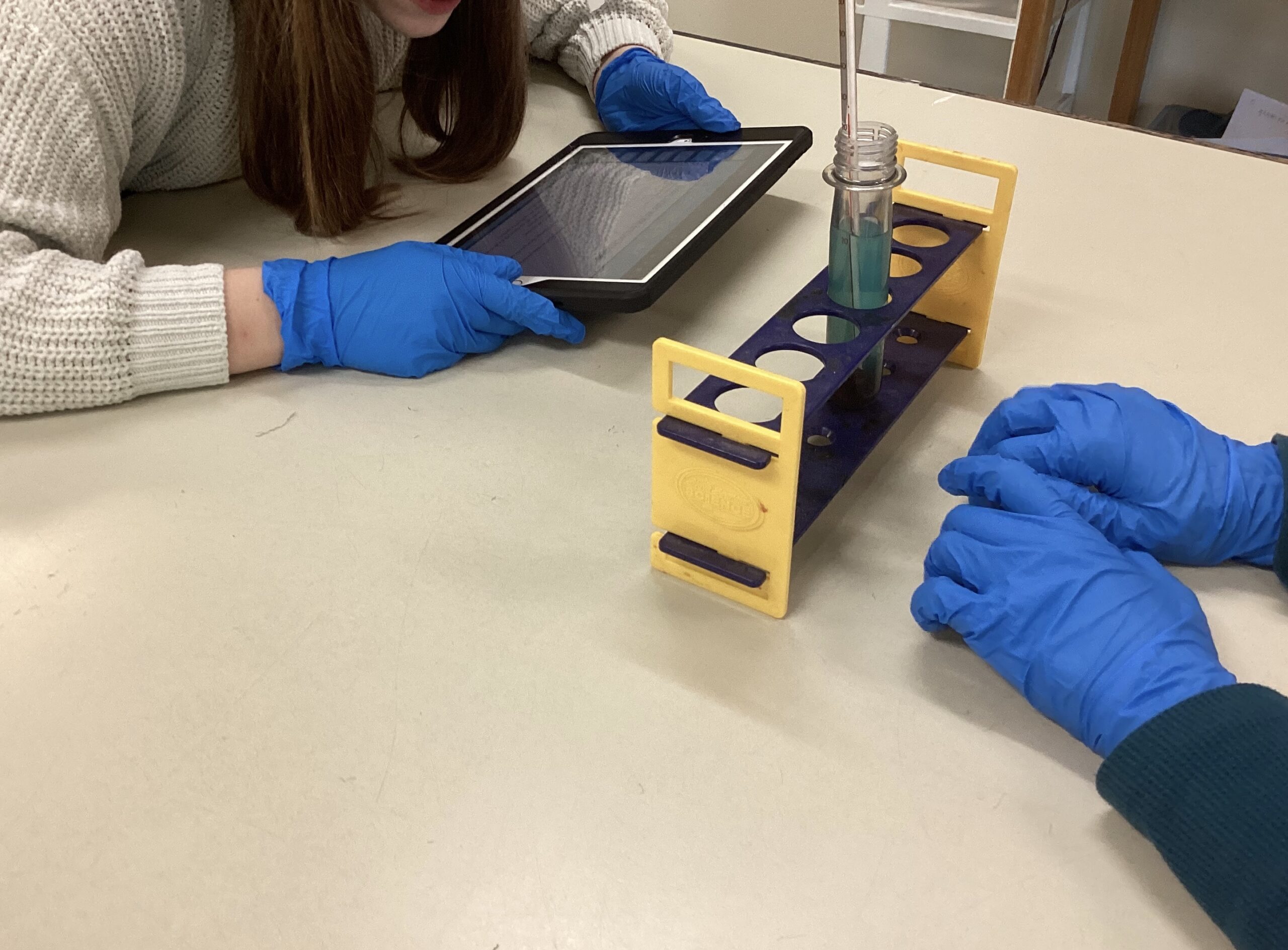
Tips For Success as a New Middle School Science Teacher
Updated April 25, 2023
I still vividly remember being terrified, over 30 years ago, as I was stepping into my classroom as a new middle school science teacher! The eighth graders seemed so big and I felt so unprepared. I was in a small private school so there were no other science teachers. I was it!
I would have jumped at the chance to have a veteran teacher give me some tips for success. I’d like to be that for you!
Let’s go through the most important steps you should take to get off to a strong start with the least amount of anxiety.
What Should You Do BEFORE SCHOOL BEGINS as a New Middle School Science Teacher?
Start by organizing yourself.
-Get a paper or digital planner and use it consistently.
-Get a copy of your schedule and do your best to memorize it.
-Set up your lesson plan system. Where will you record your lesson plans? I highly recommend using Trello.
-Set up a journal where you will record the good, the bad, and the “needs tweaking” EVERY SINGLE DAY. Trust me, you will thank yourself later.
-Make sure that your school email is working. Many teachers may disagree, but at least for the first year, I recommend putting it on your phone so you don’t miss any important information.
-Plan out your before school home routine. What time do you need to get up? What needs to be done so that you are not rushing? Test how long it takes to drive to school and add 15 minutes for school traffic.
Prepare Your Curriculum
-As soon as you know your units, plan on staying at least 2 to 3 weeks ahead of your students in terms of content. Next year will be so much easier!
-Refresh yourself on content. Use YouTube videos and the text book to take plenty of notes. Students can tell when a teacher won’t go deeper into a topic because of a lack of knowledge.
-If you have a team, use them! Don’t reinvent the wheel. However, do your homework BEFORE you ask. First impressions are very important.
-If you will be the only science teacher, such as in a private school, research the basic standards that should be covered by your district and by NGSS. This way, anybody who has questions about your scope and sequence, can be shown your references.

Get to Know the Campus and Important Staff
-Walk around the campus to make sure you are familiar with the bathrooms, the office, and how long it will take you to get between classes if you are traveling.
–Any veteren teacher will tell you that the most important staff in the building are the janitor and the office workers! Learn their names quickly, and they will help you forever. Remember them at holidays with a gift certificate or thoughtful gift.
-If you are in the hallway with your students, insist that they properly greet ALL staff.
-Avoid going to the parts of the building, such as the teachers lounge, where negativity may prevail. Also, avoid any colleagues that are disgruntled.
Organizing Your Science Classroom
Your classroom is your home for ten months, so it must feel so to you. I don’t mean it has to be Pinterest worthy with decorations and color schemes. I’m talking about good traffic flow, your own personal area, and clean, organized work areas.
Let’s start with your desk. Where can you place it to discourage students from stepping behind it or touching your materials? I have mine at an angle across the corner of my classroom with my bookcases, mini fridge, and filing cabinet behind it. On the first day of school students are taught all of the off-limits areas.
What do you need for your desk?
Desk calendar,
-Phone charger
-Filing cabinet or bins. (Don’t keep tests at school. Keep them at home so they can’t be taken.)
-A bookcase for teacher guides
-A snack drawer, and maybe a mini fridge for you
-A small box of personal supplies
-Sub folder with 2 to 3 days of work in case you call out sick. Include class lists, seating charts and your schedule.
Organizing Student Desks and Tables
You will probably play around with your room set up throughout the year. You will quickly learn the student dynamics and how labs and activities are going. If you have sinks, make sure the pathway to them is clear and easily assessable.
Students are guaranteed to beg you to change seats to be near their buddies. Make a written chart and stay firm with your decisions.
Learn the Technology at Your School
There is nothing more disruptive to a well planned lesson than technology glitches! Even the best planners, with good knowledge of the equipment, can run into problems with poor Wi-Fi or non-functioning hardware. Have somebody train you on the projector and computer in your classroom. Tape note cards with instructions nearby. If you can, practice as much as you can before the school year starts.
That being said, there are days when the technology is just not cooperating. Always, always, always have an activity on the back burner! Of course, the day that you are struggling for 10 minutes, trying to connect, will be the day that administration decides to spontaneously observe you. If you smoothly pull out your back up plan, it might never be noticed. Even if you are not being observed, it is always good to have a back up activity to keep you from having anxiety and from letting the students see you get flustered.
Classroom Inventory
Knowing exactly what inventory you have in your cabinets and drawers is essential to planning for science. I keep both paper and digital copies with me and update them as often as possible. This avoids having to dig through your cabinets and drawers at the last minute.
Having all of your materials accounted for has the added perk of you being able to plan from home in your pajamas!
Prepare Yourself For Your Students
-Check all files on students to see if there are any special accommodations you need to make BEFORE you make seating charts.
-Try to get a copy of the yearbook from the previous year to put names with faces.
–Always use assigned seats. Not all teachers agree, but it is essential for a new teacher. It makes taking attendance quicker, plus learning student names will be much faster.
-YOU create the working groups or partners. Otherwise, students are left out or unwanted combinations occur.
-Put up a poster of your basic rules, which should be no more than five, that you refer to often.
-Discuss with the other middle school teachers about how they allow students to enter their classroom. Be prepared to have your OWN system in place.
The Critical First Day of School
The first day is so important that I have a separate post just about that.
The tone you set, the rules you create, the energy you have, will carry throughout the entire year.
-Do not be timid. I am basically an introvert, so it took me a while to be assertive in front of kids that are bigger than me. However, if you are giving off the vibe of being super organized and prepared, students crave and respect that!
A quick side story: I had a parent tell me that she had several eighth grade boys for dinner and they were, of course, discussing teachers. They classified me as the “only one who keeps us in control so that we can learn”. Students really do want to have a calm, organized and informative atmosphere!
.
The First Five Minutes of Class
Every veteran teacher will tell you that what happens in the first five minutes of class will set the tone of the entire class. Trying to backpedal is almost useless, and very frustrating.
Check out my blog post called 10 Tips for Good Time Management in the Science Classroom and you’ll see that no student may approach my desk for any reason when they first walk into my classroom. I do attendance while they do a bell ringer, and then I will allow them one at a time to approach me.
The mass bombardment to the teacher’s desk upon entering can get you flustered, which students enjoy. You also can’t see what the rest of the class is doing behind them.
Make Everything Count
I have found that keeping students on their toes, in terms of accountability, keeps them in line. I don’t mean stressful testing all the time at all. I approach everything that we do with statements like “you’ll be happy to know that if you complete this easy lab and questions that you will get 10 points!”
Students are quite often surprised when they haven’t done well on tests, but they get a good semester grade. I show them that, if everything else was done well, then they can usually end up with a decent grade. I explain this a lot at the beginning of the school year. It really does take the pressure off and also gives you lots of data!
Show the students any rubrics, with how they will be graded, BEFORE they even begin the activity. You are making it THEIR CHOICE to do well. It is important that they know that you are not picking a subjective grade off the top of your head.
Assess students in multiple ways. For example, when I teach electricity, I have them design and build electrical circuit arcade games. By the time they are done, they know the concepts very well. Why would I need a written test?
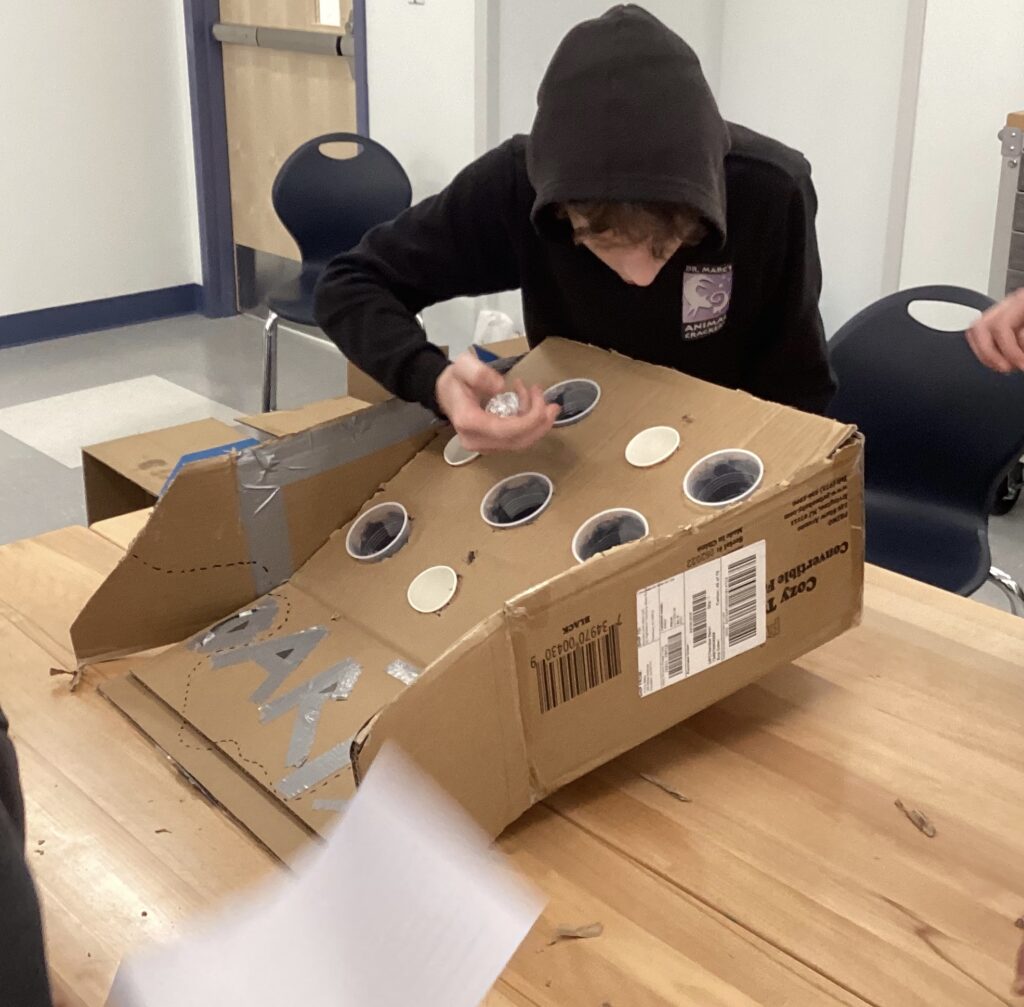
Always Give the Students Choices
Giving choices for projects, and even smaller assignments, made a HUGE difference when I started doing this. Not all kids are crafty or like writing. However, they may love during stop action, or PowerPoint presentations. As long as the material is well presented, you could have different types of assessments.
Keep GREAT, Not Just Good, Records!
Education has changed a lot. Veteran teachers have seen one of the biggest shifts from “the teacher knows best” to “the student that is always right”. Where does this come from? The “new“ parents.
The biggest defense you have against this is immaculate recordkeeping. Date and record any and all behavior or academic incidences. Be sure to keep your administrators in the loop.
This, of course, will not prevent a difficult parent from approaching you, but it will help you deal with the situation. I wrote a blog post all about this because it WILL occur in your teaching career. (Dealing With a Difficult Parent as A Teacher)
Conclusion
Remember, it is YOUR classroom, and once you have the tools in place and organization under control, your teaching will reflect that. In turn, this will create a warm and relaxed atmosphere in your classroom!
I am always available for questions or help for science teachers. Check out my classroom management posts along with many other science resources.


